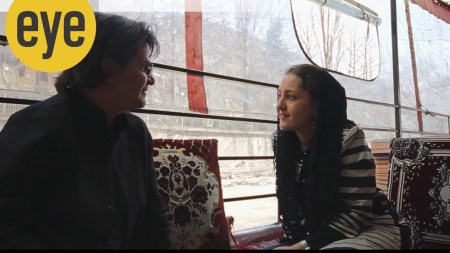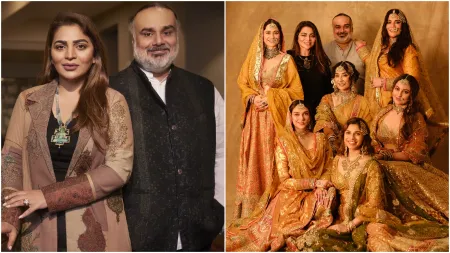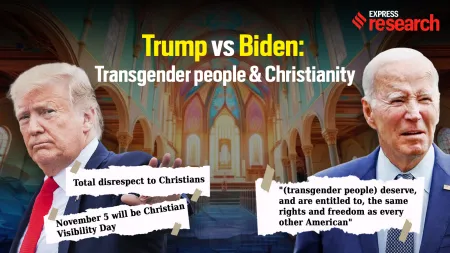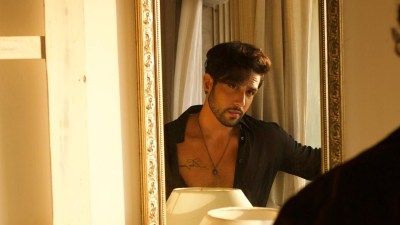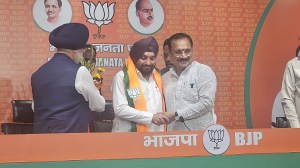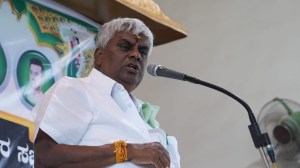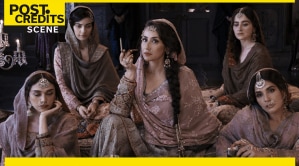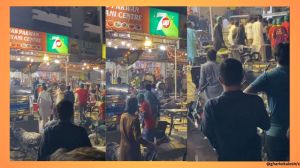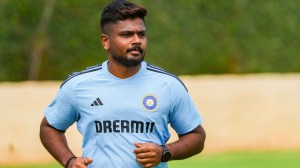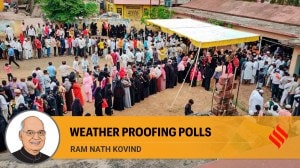- India
- International
At Raisina Dialogue, world leaders discuss climate change, tech
Prime Minister Narendra Modi and External Affairs Minister S Jaishankar, among others, were in audience during the discussion.
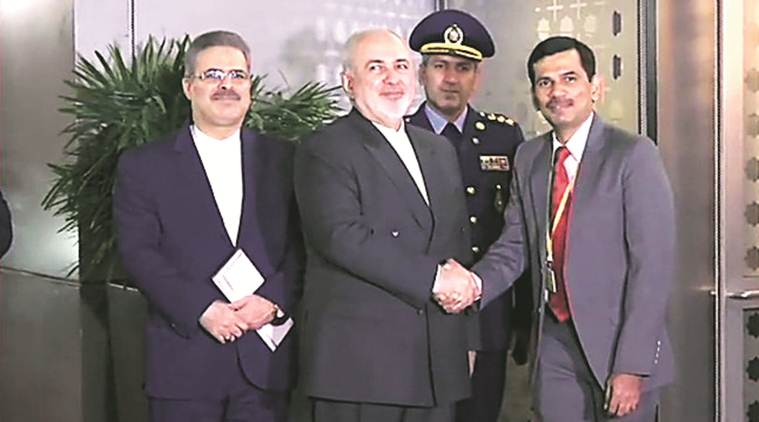 Iran Foreign Minister Javad Zarif (left) on his arrival in New Delhi. He will meet PM Modi and speak at Raisina Dialogue on Wednesday. (ANI)
Iran Foreign Minister Javad Zarif (left) on his arrival in New Delhi. He will meet PM Modi and speak at Raisina Dialogue on Wednesday. (ANI)
As former Prime Minister of Bhutan Tshering Tobgay said the UN Security Council has failed the world on climate change, four out of seven former heads of state at the Raisina Dialogue spelt out “climate change” as the one challenge they would like to solve in future.
At the inaugural session, Tobgay said, “Till now the UNSC has adopted only one resolution on climate. This has to change. Climate remains the biggest concern.”
Besides Tobgay, former Prime Minister of Sweden Carl Bildt, former New Zealand PM Helen Clark and South Korea’s former PM Han Seung-Soo also underlined “climate change” as the challenge they would like to see resolved in the coming years.
While former Afghanistan President Hamid Karzai sought a more “humane world order” on the basis of Mahatma Gandhi’s thoughts, Stephen Harper and Andreas Fogh Rasmussen, former PMs of Canada and Denmark, respectively, said “technology” is one challenge they would like to resolve in future.
Sweden’s former PM Carl Bildt underlined climate change, tech, cyber and space among the challenges that are to be resolved together.

This was the highlight of the panel discussion, moderated by Observer Research Foundation (ORF) president Samir Saran, who asked the visiting dignitaries about that one challenge they would like to see resolved in the coming years.
Prime Minister Narendra Modi and External Affairs Minister S Jaishankar, among others, were in audience during the discussion.
Raisina Dialogue, India’s flagship global conference on geopolitics organised jointly by the Ministry of External Affairs and ORF, began with Rasmussen, also NATO’s former Secretary General, saying that he would like to see a global alliance of democracies to stand up to oppressive rulers and regimes, and India could play an important role in such a coalition. “I am an admirer of Prime Minister Narendra Modi and India’s participation in this alliance is important,” he said.
Harper said, “Climate change cannot be tackled through targets. We need zero emission technology and development.”
Harper said one great challenge liberal democracies face is coping with political protests in their own countries that have arisen primarily as a combination of new technology, the uneven distribution of organisation and rise of nationalism.
“I think these are things creative leaders will learn to accommodate. I think the great strength of liberal democracies is that they are often wrong but over time correct their errors,” he said on being asked about whether the trans-Atlantic liberal order he had envisioned was fraying.
Harper hailed Modi’s leadership and said India will be a country that is self-defined. “India is not going to be a bastion of Western liberals. Under the current government, (India’s) identity is coming back in a big way,” he said.
Australian PM Scott Morrison, who was scheduled to deliver the inaugural address but had to call off his four-day visit due to the devastating bushfire in several parts of his country, sent a video message, stating that India is and will remain the “strategic lynchpin” in the Indo-Pacific.
“The term Indo-Pacific reflects the recognition that India’s power and purpose will be vitally important to the region and to resolving and supporting shared security challenges. India has taken on an increasingly active role in the Indian Ocean,” he said.
Speaking at the event, Jaishankar said India’s foreign policy seeks to achieve a broad engagement with many parties and “managing if not leveraging global contradictions, advancing our interests in a multi-polar world and contributing to global good”.
The Raisina Dialogue is organised jointly by the Ministry of External Affairs and the ORF, and the fifth edition of the conference is themed ‘21@20: Navigating the Alpha Century’. The three-day conference will see participation of 12 foreign ministers – from Russia, Iran, Australia, Maldives, South Africa, Estonia, Czech Republic, Denmark, Hungary, Latvia, Uzbekistan, and the EU.
Buzzing Now
May 04: Latest News
- 01
- 02
- 03
- 04
- 05







